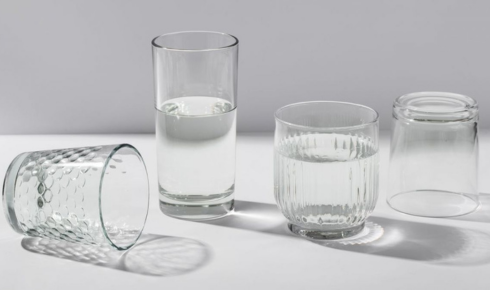If you live in Nashville, chances are you’ve wondered—maybe even mid-sip—what’s really in your water. It’s not paranoia; it’s curiosity mixed with a bit of caution. The city’s skyline might gleam with progress, but when it comes to water quality nashville, there’s more beneath the surface than most residents realize.
Let’s be honest: we take our water for granted. It’s there when we twist a faucet, rinse a dish, or make that first cup of morning coffee. But just because water looks clean doesn’t mean it’s free from issues. Nashville’s water comes primarily from the Cumberland River, which, while picturesque, has to pass through layers of treatment before it’s deemed safe for your sink.
A Look at the Source
Nashville’s main water source—the Cumberland River—is both a blessing and a challenge. On one hand, it’s a renewable supply that keeps the city hydrated year-round. On the other, the river is exposed to agricultural runoff, industrial waste, and stormwater pollution. That means every drop that ends up in your glass has taken quite a journey before reaching you.
Metro Water Services does a solid job maintaining standards, and they publish annual water quality reports to prove it. The 2024 report, for example, shows compliance with the Safe Drinking Water Act. But compliance doesn’t necessarily equal perfection. Even trace contaminants like lead, chlorine byproducts, and microplastics can be present—just within “acceptable” limits.
The “Safe” Label—What It Really Means
The Environmental Protection Agency (EPA) sets limits for what’s considered safe in drinking water, but “safe” doesn’t always mean “ideal.” These standards are often compromises between what’s technologically achievable and what’s economically feasible. In short, your water might meet legal requirements but still carry traces of things you’d rather not ingest daily.
Take chlorine, for instance. It’s necessary for disinfection, but its byproducts—known as trihalomethanes—can pose long-term health concerns. Or consider lead, which can seep in through old pipes even if the treatment plant does everything right.
That’s where things get complicated. Nashville’s water is monitored carefully, but once it leaves the plant and travels through miles of old infrastructure, it’s no longer entirely under the city’s control.
What’s in Your Glass, Really?
If you’ve ever noticed a faint chlorine taste or an earthy odor, that’s not your imagination. It’s a sign that your water still carries remnants of the purification process. Some neighborhoods report occasional discoloration or sediment, usually due to old mains or hydrant flushing. While these events are temporary, they’re unsettling for anyone expecting crystal-clear tap water.
To get a true sense of nashville drinking watertap water in nashville, residents often turn to independent testing kits. These small tests can reveal everything from pH levels to the presence of heavy metals. Results vary, of course, but most fall within acceptable ranges—with occasional spikes depending on location, plumbing age, or recent water main work.
The Role of Aging Infrastructure
Nashville is booming, but its underground systems haven’t all kept pace with the growth. Some pipes date back decades, long before modern standards were enforced. Even with the city’s ongoing upgrades, aging infrastructure remains a silent contributor to fluctuating water quality.
Imagine water traveling through old metal pipes, absorbing tiny particles along the way. Add seasonal temperature shifts, heavy rainfall, or construction disturbances, and you get a recipe for occasional taste or clarity changes. Not harmful, per se, but not exactly reassuring either.
Should You Use a Filter?
This is the million-dollar question. While Metro Water insists that the city’s water meets federal safety standards, many residents opt for home filtration systems for peace of mind. A simple activated carbon filter can remove chlorine taste and odor, while more advanced reverse osmosis systems can filter out microscopic contaminants.
Think of it less as an indictment of the city and more as a personal choice. Just like people prefer organic produce or natural cleaning products, filtered water is about reducing exposure where possible.
Hydration vs. Hesitation
Interestingly, the debate about tap water often leads people to drink less water overall. That’s not good. Dehydration can cause fatigue, headaches, and even skin issues. So, it’s important to find your comfort zone—whether that means bottled water, filtered water, or tap water you trust. The goal is consistent hydration, not overthinking every sip.
In fact, regular testing, awareness, and a decent filter can strike that balance perfectly. After all, staying hydrated shouldn’t feel like a chemistry quiz.
How Nashville Compares to Other Cities
When compared to other U.S. cities, Nashville actually fares reasonably well. It doesn’t top the charts, but it’s far from the worst. Cities with older infrastructure or more industrial surroundings face far tougher battles. Still, the city could improve transparency—especially when it comes to microplastics and emerging contaminants that aren’t yet fully regulated.
In a way, Nashville is at a crossroads. Its population is booming, and environmental awareness is higher than ever. How the city chooses to invest in its water systems now will shape not just the next decade, but generations of health and trust.
A Few Simple Steps You Can Take
If you’re concerned about your tap water, start small. Check the annual water quality report—Metro Water Services publishes it online. Then, run your tap for a minute each morning before using it for drinking or cooking. This helps flush out any stagnant water that’s been sitting in the pipes overnight.
Consider installing a mid-range filter or pitcher system. They’re inexpensive, easy to maintain, and can make a noticeable difference in both taste and peace of mind.
Final Thoughts
The bottom line? Nashville’s water is generally safe, but that doesn’t mean it’s flawless. Staying informed is your best defense. Know what’s in your water, understand how it’s treated, and don’t hesitate to take control of what you consume.
Clean water isn’t just a utility—it’s a basic right and a reflection of how a city cares for its people. Nashville’s charm lies in its mix of tradition and modern growth. Let’s hope its approach to water keeps up with both.

